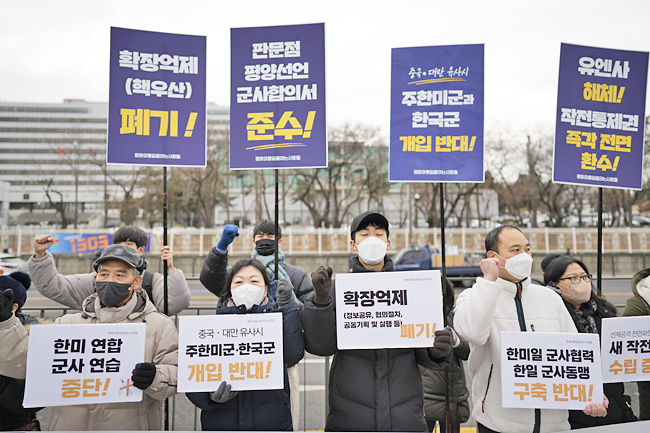SEOUL (AFP) – United States (US) Defense Secretary Lloyd Austin met his counterpart in Seoul yesterday, pledging to beef up joint drills and security cooperation as South Korea seeks nuclear reassurances in the face of growing North Korean threats.
Seoul is eager to convince its increasingly nervous public of America’s so-called extended deterrence commitments, after a year in which North Korea declared itself an “irreversible” nuclear power and conducted a banned weapons test almost every month.
Austin and South Korean Defence Minister Lee Jong-sup agreed to “expand and bolster the level and scale” of joint military exercises, in light of “continued provocations” from Pyongyang, including a recent drone incursion, they said in a statement.
Military tensions on the Korean peninsula intensified sharply in 2022 as the North conducted a record-breaking number of weapons tests, including firing its most advanced intercontinental ballistic missile.
Pyongyang sent five drones across the border on December 26, the first such incident in five years, prompting Seoul to scramble warplanes.

Austin and Lee agreed to “further expand and strengthen the scale and level of combined exercises and drills this year”, Lee said at a press briefing in Seoul.
This was necessary due to “changes in the security environment, including North Korea’s recent attempts to upgrade its nuclear and missile programmes”, he said.
The two security allies will conduct a “tabletop exercise” in February to improve communication on “deterrence and response options” to Pyongyang’s nuclear threats.
“We will do a number of tabletop exercises to ensure that we’re seeing things eye to eye,” Austin said at the briefing.
Any joint US-South Korean military exercises infuriate Pyongyang, which views them as a rehearsal for an invasion and has often responded with threats and drills of its own.
Austin is visiting Seoul for the third time as defence secretary and met with both Lee and South Korean President Yoon Suk-yeol.
This month Yoon suggested his country consider acquiring its own nuclear weapons – the first time in decades a sitting South Korean president has floated the idea, reflecting growing domestic concern over the reliability of US security commitments.




